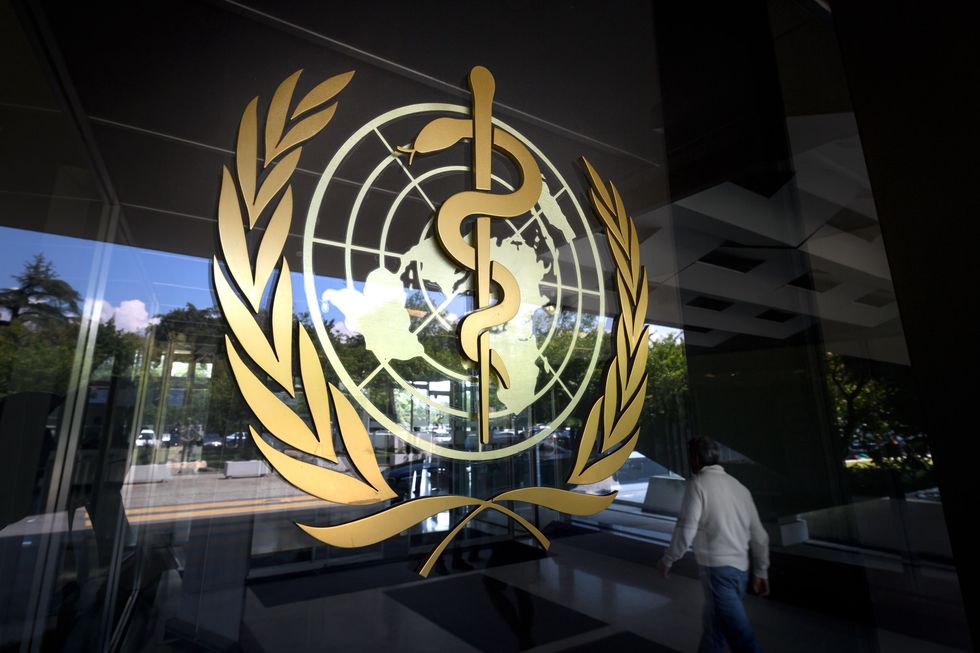Government-led negotiations on an international treaty governing how the world should deal with future pandemics made “significant progress” during the latest round of discussions at the World Health Organisation (WHO) last week.
After two years of negotiations, advancements were made on a draft agreement and a commitment by all parties to sustain momentum towards a pandemic agreement.
The ‘pandemic agreement’, also referred to as a ‘pandemic accord’ or ‘pandemic treaty’, contains a series of measures on how the world should prevent, prepare for and respond to pandemics.
The agreement is currently being negotiated by the 194 member states of the WHO after many governments felt it was important to address the weaknesses in capacities and a lack of international cooperation that occurred in response to COVID-19.

Treaty negotiations will continue, at a 12th round, from November 4 to 15
Getty
In March 2021, a group of world leaders, including the then Prime Minister Boris Johnson, announced the initiative for a new treaty on pandemic response.
In the view of the WHO director-general, there would be three key benefits to a new agreement: driving a more equitable global response, helping safeguard national health systems, and enhancing cooperation among member states during pandemics.
At the World Health Assembly in May 2024, some countries –including many African nations – urged efforts to conclude the treaty negotiation process to not lose momentum.
But others, including the US, EU and Caribbean countries such as Jamaica, called for at least another year so that key issues could be addressed.
At the time serious disagreements remained on finance, how much product pharmaceutical companies should be required to set aside for those countries most in need, intellectual property rights and sanctions.
The UK also refused to sign the treaty amid concerns it would have to give away a fifth of its jabs.
The version of the treaty in May declared that all member states, including the UK, would be required to give up 20 per cent of “pandemic-related health products” to other countries.
The WHO document said the UN-run agency would get “real-time access” to 10 per cent of these products for free, and 10 per cent “at affordable prices”.
However, according to WHO Director-General Dr Tedros Adhanom Ghebreyesus, there has been “fake information” circulating about the pandemic agreement ceding sovereignty to WHO by giving it the power to impose lockdowns or vaccine mandates.
In Geneva, a large blue bus was seen driving around urging people to “say no to the pandemic treaty.”
Reform UK leader Nigel Farage also urged against the treaty stating: “The idea that we give up our ability to decide whether we have mask mandates, to decide whether vaccines have to be compulsory, to decide whether we should be locked back into our houses again.
“I’m very serious that we have to continue with this fight.”
Farage is fronting the campaign group Action on World Health (AWH), which was registered on Companies House in May this year.
The globalists never give up. @ActionWH https://t.co/2zxnfeUYdi
— Nigel Farage MP (@Nigel_Farage) September 24, 2024
LATEST FROM MEMBERSHIP:
WHO accused Farage of spreading misinformation about the pandemic treaty stating: “Claims that the draft agreement will cede sovereignty to WHO and will give the WHO secretariat power to impose lockdowns or vaccine mandates on countries are false and have never been requested nor proposed. This agreement will not, and cannot, grant sovereignty to WHO.”
But Farage denied these claims saying the UK government was “running scared” and that he was “trying to bring to the public’s attention something that is not being debated.”
The proposed treaty boasts references to things such as human rights, equity, solidarity and an “integrated, unifying approach that aims to sustainably balance and optimise the health of people, animals and ecosystem.”
While it has the potential to constrain governmental freedom of action, just how far the requirements of the documents go remains unclear.
What it could require governments to do is to consider WHO recommendations in the development of national policies, the assurance of ‘equitable’ access to vaccines and the consideration of things such as no-fault compensation schemes for when things go wrong, according to Andrew Tettenborn, a professor of law at Swansea Law School.
Treaty negotiations will continue, at a 12th round, from November 4 to 15, continuing almost three years of work so far.